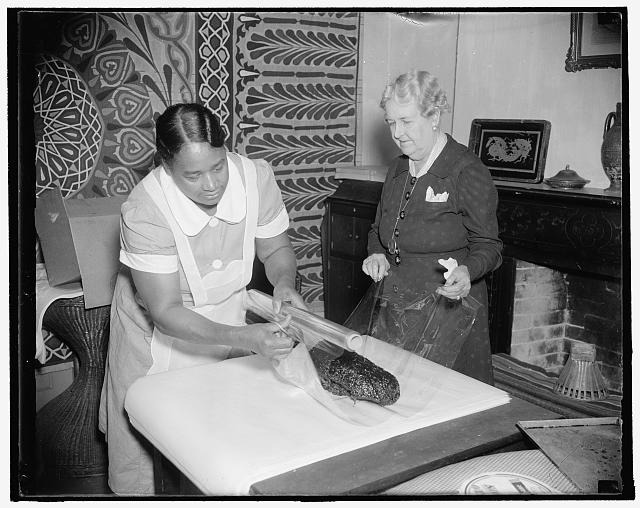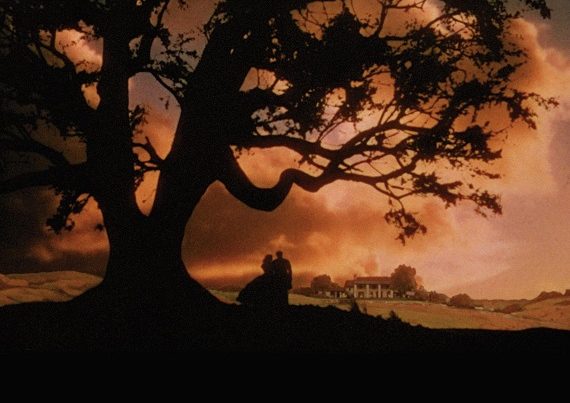In February 1820, a native Virginian then residing in Richmond wrote a letter to a good friend in Princeton, New Jersey. One of his topics in the missive was how best to prepare a hog for dinner:
Altho’ I am sick and harassed with much business I must write soon, least your pork should be too long in brine. . . . If you fatten your own hogs, purchase if you can – that is if you do purchase at all – such as have been allowed to run wild in the woods and live on acorns, hazlenuts &c. – Fatten on corn; giving two or three times a week a feed of pumpkins or turnips. Kill your hogs on the increase of the moon. After they are cleaned and washed out, let them hang up a night to drain, and to become thoroughly cold. You ruin your meat if you salt up before the marrow has become hard. Procure a tub for laying away the pieces as they are salted – An old molasses or sugar hogshead well cleaned is as good as any thing (Mrs. R.). You are now prepared for work; and hard work it is. A strong man, with a hand well hardened or well defended (The hogs ear is often used as a sort of glove for this purpose.) takes a quantity of the best salt (Liverpool is commonly used among us) in a large tray or other shallow vessel, and rubs the meat laid in among the salt, until the dry hard skin of the hog feels soft and yielding. Both sides however are to be well rubbed. When this operation is over let Mrs. Miller or one of the young ladies take just as much pulverized salt-petre as can be taken up between the thumb and the four fingers laid together, and sprinkle carefully all over the fleshy side of the ham, and on the end of the hock. Lay this piece then into your powdering tub; and proceed in like manner with the others until you have gone thro’ the whole. Your tub is then to be put away in the smoke house; where it is to stand from four to six weeks according to the weather. The meat takes salt better in mild giny [Virginia?] weather, than when it is cold and frosty. Should the weather be uncommonly warm, draw off by a [gimlet?] hole, or in any way you please, some of the brine, and by the smell, you can ascertain in a moment whether the meat is in danger of heating. In this case; you must take it out; hang it up piece by piece; let it cool; rub a little more salt on, and return it to the tub.
When the meat is sufficiently salted, hang it in the smoke house, and urge a smoke daily until the skin of your hams shall have acquired a bright cinnamon colour. Hickory wood is far the best to smoke with – next to that[,] oak. During the process of smoking, take care that the fire does not become brisk and large. It may thus heat the house so as to injure the bacon. With chips and a little sawdust, or some such thing, you can by a little attention keep it sufficiently smothered.
N.B. [Nota Bene] to make this true Virginia ham, no pickle is used; nor the least moisture except what comes from the melting of the Salt, ever touches the meat.
Probatum est. [It is tried, tested, or proved.]
This subject has proved more copious than I expected. If, however, you learn by our directions to make the genuine bacon, why when we come to Princeton you shall feast us on it. And let me add, that should you eve(r) make this remuneration, you must boil your cabbage or turnip salad with the ham, to give them the true flavour.
Far from simply a connoisseur, the writer, John Holt Rice (1777-1831), in fact was the foremost Virginia Presbyterian minister of his day. A leader nationally in the Presbyterian Church, Rice served as moderator of his denomination’s general assembly in 1819-1820 and preached at the Capitol in Washington (“Congress Hall”) as he completed his year in that prominent role. John Holt Rice was tirelessly dedicated to evangelizing his Virginia and Southern countrymen, establishing a seminary in Virginia (Union Theological Seminary), and doing all he could to raise the educational and literary standards of his fellow citizens. In 1822 he was offered the prestigious presidency of the College of New Jersey at Princeton. He turned it down, believing it to be his duty to remain in the South and there expend himself for the sake of his fellow countrymen.
Clearly, J.H. Rice also appreciated “true Virginia ham.”







This story is much appreciated from a backyard “Pitmaster” like myself. I could never compete with John Holt Rice on smoking pork. Excellent story, thanks Mr. Marion for sharing.